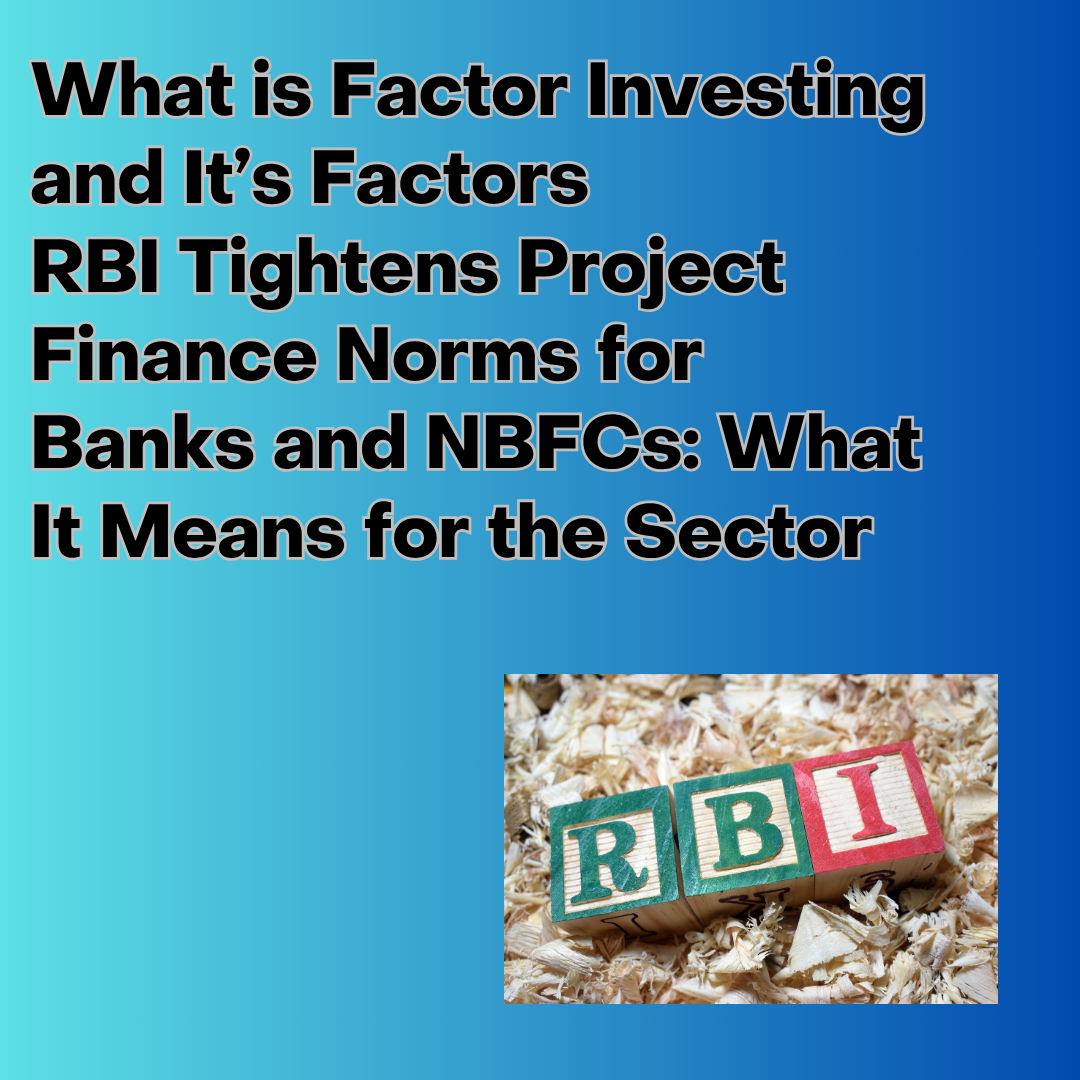- SENSEX 82408.17 1046.3 (1.27%)
- NIFTY 50 25112.4 319.15 (1.27%)
- GOLD 99096 -13 (-0.01%)
- SILVER 106275 51 (0.05%)
- NASDAQ 19547.22 0.95 (0%)
- FTSE 8784.27 66.3 (0.75%)
- Nikkei 37724.11 192.58 (0.51%)
- Crude 6419 -6 (-0.09%)
- USD/INR 86.5936 0.01 (0.02%)
- EURO 99.7488 -0.1 (-0.1%)
- POUND 116.4033 -0.19 (-0.16%)
- SENSEX 82408.17 1046.3 (1.27%)
- NIFTY 50 25112.4 319.15 (1.27%)
- GOLD 99096 -13 (-0.01%)
- SILVER 106275 51 (0.05%)
- NASDAQ 19547.22 0.95 (0%)
- FTSE 8784.27 66.3 (0.75%)
- Nikkei 37724.11 192.58 (0.51%)
- Crude 6419 -6 (-0.09%)
- USD/INR 86.5936 0.01 (0.02%)
- EURO 99.7488 -0.1 (-0.1%)
- POUND 116.4033 -0.19 (-0.16%)

The Reserve Bank of India (RBI) has introduced a significant regulatory update that could reshape the landscape of project financing in India. With an aim to strengthen credit discipline, mitigate risks, and improve the health of banking institutions, the RBI has rolled out stricter norms for banks and Non-Banking Financial Companies (NBFCs) engaged in financing infrastructure and large-scale projects.
In this blog, we’ll break down what these changes mean, why they matter, and how stakeholders in the infrastructure and finance sectors should prepare.
What Are the New RBI Norms on Project Finance?
The RBI’s revised framework introduces a series of critical changes:
1) Enhanced Due Diligence
Banks and NBFCs must now conduct more comprehensive risk assessments before disbursing funds. This includes evaluating the viability of the project, sponsor background, environmental risks, and more.
2) Higher Provisioning Requirements
Lenders will be required to set aside a larger share of capital for under-construction and greenfield projects to account for the higher risk associated with them.
3) Independent Credit Evaluations (ICE)
All large project finance proposals must undergo third-party credit assessments before approval. This ensures objective evaluation and prevents internal biases.
4) Tighter Monitoring of Cost Overruns
The revised norms require tighter checks on project timelines and cost estimates. Lenders must review and approve any significant delays or overruns in funding.
5)Standardization of Terms and Contracts
Loan agreements will need to comply with uniform standards for security cover, repayment schedules, and milestones. This brings more transparency and predictability to the financing process.
Why Has RBI Introduced These Changes?
India’s infrastructure sector is critical to economic growth, but it has often suffered from delayed projects, cost overruns, and non-performing assets (NPAs) due to lax financing practices. The RBI aims to:
- Reduce credit risk for banks and NBFCs
- Bring financial discipline to project planning
- Align domestic norms with global best practices
- Prevent future build-up of bad loans in the sector
- These changes come in the wake of multiple stressed assets and failures in long-gestation projects that disrupted bank balance sheets in the past decade.
Impact on Stakeholders
For Banks & NBFCs:
- Will require upgrading credit appraisal systems and deploying skilled manpower for project vetting.
- Could delay loan disbursals in the short run but improve portfolio quality long term.
For Project Developers:
- Need for improved planning, transparency, and compliance.
- Must be prepared for stricter scrutiny and possibly slower fund approvals.
For Investors & PE Funds:
- Could open doors for co-lending opportunities and structured finance models.
- Long-term projects may become safer and more bankable under the new norms.
A Structural Shift in Project Financing
This regulatory move by the RBI is not just a policy tweak—it's a structural shift that aims to build a more stable and transparent project finance ecosystem in India.
While it may slow down financing activity temporarily, it is likely to bring more credibility, reduce defaults, and build investor confidence in the long run. Developers and financiers who adapt quickly to the new framework will be better positioned to succeed in the evolving landscape.
Final Thought
Project finance is the backbone of India’s infrastructure ambitions. The RBI’s new norms mark a turning point toward more disciplined, data-driven, and risk-aware lending practices.
At Blissmoney Fintech, we help businesses and investors navigate regulatory changes and make informed financial decisions. If you're a developer, investor, or lender looking to understand the new framework better, reach out to us for personalized insights.


